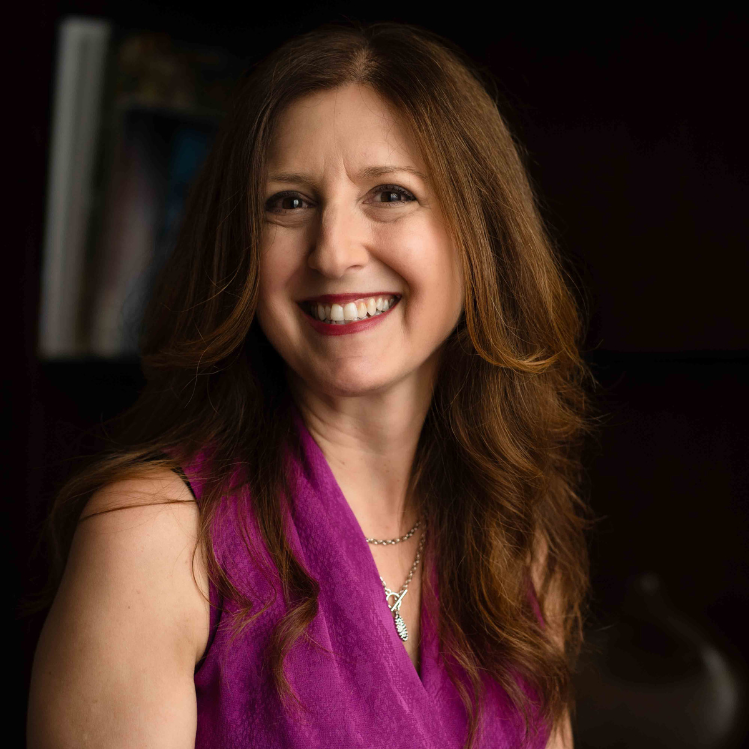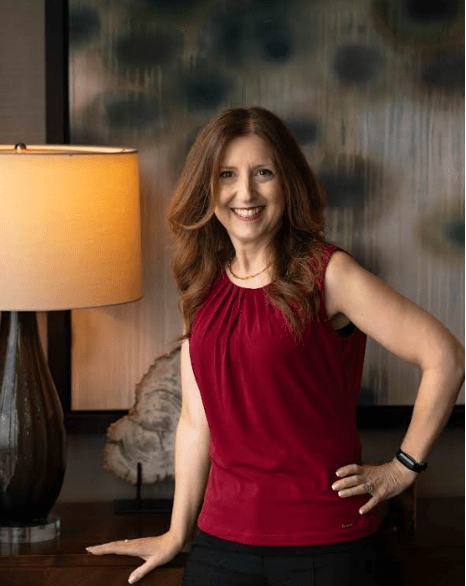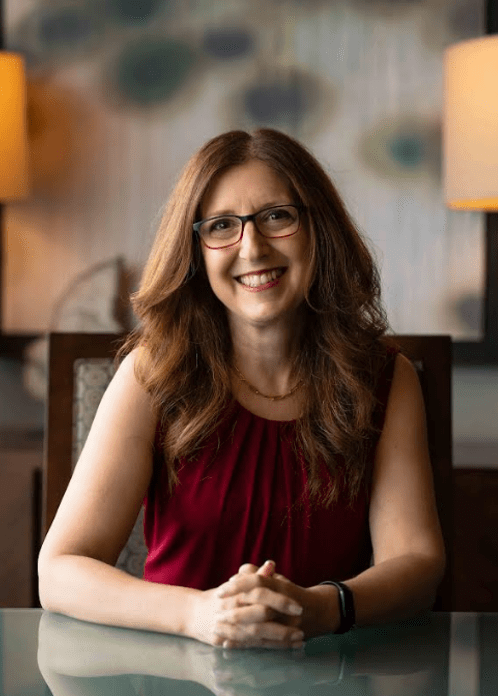
Finding Inner Strength: A Healing Journey with a Renowned Therapist
Step into the realm of Janet Philbin, where 33 years of expertise as a Licensed Clinical Social Worker converge with a passion for healing and empowerment. Through a unique blend of psychotherapy, hypnotherapy, and conscious parenting coaching, Janet guides clients on a journey of inner awareness and growth. With a belief in the innate ability of each individual to heal, Janet’s philosophy centers on the importance of re-parenting the inner child and fostering deep connections with oneself and others. From best-selling author to public speaker and advisor, Janet’s impact resonates globally, offering transformative insights into inner healing and personal development.
Can you tell us about your journey to becoming a Licensed Clinical Social Worker and how it has shaped your approach to psychotherapy and hypnotherapy?
My journey to become a licensed clinical social worker began in college when I was a student in a class called introduction to social welfare. This was my first introduction to social work, and I was immediately intrigued and hooked. I decided to do my Graduate School education at New York University because I wanted a school which was going to be more clinically focused. My drive which has shaped my approach to psychotherapy and hypnotherapy is my inherent belief that all of us can heal if we choose to heal. I also believe that each of us has within us all the resources that we need to be successful in healing, we just need the right therapist, guide, or support to be there by our side as we travel the healing journey. I believe healing is a journey from the inside out.
What inspired you to delve into the world of conscious parenting coaching, and how does it intersect with your background in psychotherapy and hypnotherapy?
In 2017 I was introduced to the book, The Awakened Family by Dr. Shefali. At that time my youngest child was 11 years old, and I was really struggling as a mom with parenting. The Awakened Family spoke to me like no other book on parenting ever had and I immediately began to apply the principles and practices of conscious parenting with my 11-year-old and my teenage children. Within two weeks I began to see a shift with my youngest child, and I realized that my controlling way of being a parent was the problem. I learned through conscious parenting that there is nothing to fix, the child is not broken. The work to heal what is happening within the dynamics of the family begins with the parent. Learning this, feeling this, and experiencing this was transformative for me and I realized I would be able to incorporate conscious parenting principles into the work I was already doing with my psychotherapy and hypnotherapy clients. I was easily able to incorporate conscious parenting concepts into my work because conscious parenting is all about helping the parent heal from the inside out. My work, whether I am working with someone for hypnosis, psychotherapy or coaching a client, is all about helping someone heal from the inside out. I support my clients to gain insight about themselves, understand themselves, and heal the wounded parts in order to transform themselves and the relationships in their present life.
Your book, “Show Up For Yourself- A Guide to Inner Awareness and Growth,” sounds enlightening. What motivated you to write it, and what key insights do you hope readers take away from it?
My book, Show Up For Yourself, was motivated by my desire to reach more people and connect with people who have been searching to find a way to emotionally feel better but didn’t know where to begin or what a process of emotional healing includes or looks like. My book takes readers through my journey of healing and through my journey of healing I share the work I do as a psychotherapist and hypnotherapist to help my clients heal. My book is about self-growth. In my book I share the concept I developed called The Spiral of Healing. The Spiral of Healing has four components feel, heal, love, grow. The spiral is a process of going inward to rise up, and as we are on that spiral, we touch these different levels and layers of feel, heal, grow, and love. Each time we touch a level when we look at a same or similar pain again, we can do so more easily and learn even more about ourselves because we’ve already healed a layer of it. My greatest wish is that it opens windows and doors for people to look inside of themselves and explore their pain in a safe way. What I would love readers to take away from the book is that healing is a journey, it is never too late to begin to heal, and all of us can find the healing we seek when we are willing to be brave enough to look at what has caused us pain.
As a practitioner with 33 years of experience, what do you believe sets your unique eclectic style of counseling apart, and how does it benefit your clients?
Thank you for this question. Over the last 33 years as a social worker, I have worked in a variety of settings from an inpatient hospital in the inner city in New York, to a long-term care center working in geriatrics, being a Hospice social worker and during my time working in the hospital I was also the social worker on the AIDS team. I began my private practice working with patients going through infertility. The common thread that has connected all my work has been the theme of loss, grief and how to heal. As my practice grew, I continued to train and learn skills that I felt could help me help my clients more effectively. Which is why I became a hypnotherapist. I have incorporated my knowledge of the chakras and energy work into the hypnotherapy healing paradigm I use with my clients. My clinical expertise now focuses on trauma and healing from the emotional pain and wounds of our childhood. I believe that my eclectic approach which includes my clinical skills infused with the knowledge of the unconscious mind, how it works as well as how we store trauma and emotional pain in the physical body allows me to work with all aspects of a client’s experience and support them on their healing journey.
How do you approach the concept of inner child healing in your practice, and why do you believe it’s essential for personal growth and healing?
As I began to indicate in the above question it has been researched and shown in the literature that trauma is stored in the cellular memory of our body. There has been a lot of work in this field from Stephen Porges, MD and Bessel van der Kolk, MD. Knowing this and understanding the chakra system helps me to help my clients learn to tune into and pay attention to the sensations that come up in their physical body when they experience memories from long ago or become emotional triggered about things in their current life. The unconscious mind has no sense of time. If a person experiences something in the present moment that is similar enough to an emotional experience from the past, they do not respond with present moment awareness and instead react from a place that was developed by a younger version of themselves who had to survive something difficult. I keep all of this in mind when working with my clients in inner child healing. All of us were children once. As children we had different experiences. And based on these experiences we develop coping skills in order to survive difficult moments in our young lives. I approach inner child healing with this perspective; that the coping skills we are using now in our adult lives were developed at an earlier time in our life. Because we were not given an opportunity to heal or process those upsetting events from childhood, the coping skills are still active in our adult life now even if the way we are coping is not currently helping us. The inner child healing I practice brings clients back to safely look at these painful times in their lives and to rescue their wounded inner child. We let the inner child know they no longer need to suffer alone, that the adult self can now help them and that what happened was not their fault. This healing is transformational and empowering for clients allowing them to make positive and healthy changes in their life.
Can you elaborate on the variety of workshops you offer to companies, groups, and corporations, integrating your expertise in psychotherapy, hypnotherapy, and conscious parenting coaching to facilitate inner healing, personal growth, and enhanced parent-child connections?

Thank you for asking. I absolutely love offering workshops and facilitating classes for corporations, companies, groups, and schools. I use my expertise as a hypnotherapist and psychotherapist when facilitating workshops. I teach multiple workshops about Conscious Parenting, from the basics of what is conscious parenting to how to help parents understand and apply the concepts of conscious parenting in their homes. I also teach programs on how to help parents understand why they yell, and I give them actionable tools to help them stop yelling. One of the workshops I’m most proud of is a workshop I bring to corporations called, One Minute Mindfulness. In this workshop, I explain and teach about the unconscious mind and guide participants through an experience to access their own inner resources. They leave the workshop with tools they can apply in their day-to-day life easily and quickly decrease stress levels. When we function with decreased stress levels, we are better able to concentrate at work, build relationships, increase productivity, and be overall more emotionally healthy. That is my goal, to empower people to enhance their overall emotional health through healing. Additionally, I am also a Certified Hypnosis Trainer for the American Board of Hypnotherapy and hold yearly classes for students to become certified hypnotists and hypnotherapists.
You’re an Advisor for Dr. Shefali’s Conscious Parenting Coaching Method Institute. Could you elaborate on your role in this institute and how it aligns with your mission as a practitioner?
As an advisor for Dr. Shefali’s Conscious Parenting Coaching Method Institute I have the unique opportunity to work alongside five other talented advisors. We guide and support the students through the program through regular meetings, being available to answer questions, give guidance, and support. This work is very much in alignment with my mission as a practitioner because conscious parenting is not about the child but about the parent. When we understand that there is nothing to fix then we shift the perspective and understand it is time to heal. Conscious parenting brings the parent to a place to look at their own pain and understand how the pain of their past could be affecting the way they are parenting their children now. As a therapist my perspective is the same. To heal we must look at the past, understand our pain and the impact it is having on us in the present. Once we do that, we gain insight and with insight we can make significant changes in our life and heal.
Healing from the inside out and at a cellular level is a fascinating concept. How do you facilitate this type of healing in your clients, and what results have you observed?
From the very early days of my clinical practice, I began to understand that healing is an inside out process. My clinical training in social work introduced me to insight-oriented therapy. Essentially the philosophy of insight-oriented therapy is that once a client can gain insight and understanding about themselves change and transformation can begin to happen. As I learned about the unconscious mind, the chakras and trauma those teachings reinforced the belief I already practiced, which is healing happens from the inside out. I explain to my clients that the emotional pain, emotional injuries, hardships, traumas of life leave emotional holes within us. When we look externally for people, places, and things to fill those holes in order to make us feel better we actually can’t hold on to what we are working so hard to take in because the holes are within us, and we cannot fully integrate the outside experience and allow it to become part of us. My thoughts on what makes this difficult is that these holes within us are made-up of the false beliefs we have about ourselves. Some of the most common beliefs I see within my clients which keep them stuck are the beliefs of; I am not worthy, I am not loved, I am not important, and I don’t matter to others. Anyone would be able to understand that if you were holding on to any of these beliefs, in any degree, it would be difficult to find ways to feel good about yourself. The transformational healing therapy I conduct with hypnotherapy and that I incorporate in my coaching and psychotherapy practice is getting to the origin of these beliefs to understand why they began and to heal at the source of the faulty belief system. When we can heal at the source of this faulty belief system then we can replace the faulty thoughts with more positive ones. The clients learn to believe and own the new positive beliefs about themselves. For example, we change the beliefs to I am worthy, I am loved, I am important, and I matter. Now instead of having emotional holes we are emotionally whole. This is why healing is an inside out process we first must feel whole on the inside to function to the best of our ability on the outside.
In addition to your clinical work, you’re also involved in public speaking, workshops, and training sessions. How do these activities complement your therapy practice, and what do you hope participants gain from them?
I love participating in public speaking engagements. I specifically enjoy working in with companies and agencies and being able to speak directly with the staff. My mission has been to help people understand themselves better, heal and effect lasting change in their life. Through my workshops and presentations, I bring this wisdom and philosophy to life. I enjoy incorporating experiential experiences into all my presentations. In working with large groups, I can reach more people and therefore hopefully help more people. Because in the end the way we heal, change and grow is by the investment we make in ourselves for ourselves. I believe when each of us can touch the truth of our own heart and develop compassion for our own self we are able to have compassion and empathy for others and that is what will make a difference in this world.
With your extensive experience, what advice would you give to individuals who are seeking to embark on a journey of inner awareness and growth, but may feel uncertain or overwhelmed about where to begin?
The first piece of advice I would give to individuals who are seeking to embark on a journey of inner awareness and growth is to expect to feel a little nervous. This is normal. Chances are if you are embarking on this journey, you are calling upon yourself to be braver than you’ve ever been before. It takes courage to be vulnerable. When you are ready to look within, to understand yourself better, and be on this journey of inner exploration in order to shift, heal, and transform in your present-day life then you are stepping into a space that you may have never entered before. This may be a space you never thought you would not be able to enter but you find yourself there anyway. My other piece of advice is to get support. Do not go on this journey alone. It is very important to have someone bear witness to your journey and be a guide to help you navigate the challenges. Find a therapist, coach, or support group to help you on this journey. I also say welcome to the journey because you will learn so much about yourself and be amazed at who you find when you reach the end.






